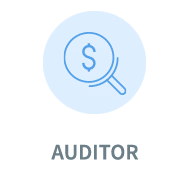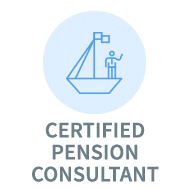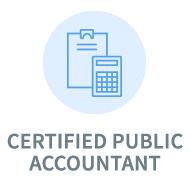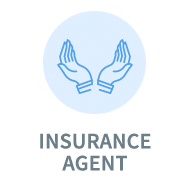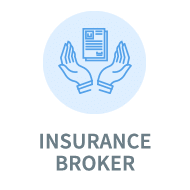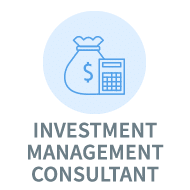Get a quote on Business Insurance
Although your firm may take great care to provide the highest quality services, when dealing with financial services, there is a heightened risk that clients will find fault with your services. All types of financial services businesses face the risk of unsatisfied clients and lawsuits. Having the right insurance coverage in place can help to protect your business if you are sued.
In addition, your financial services business also faces risks common to running any business, such as property damage and other liabilities that relate to the operations of your business. If a client trips and falls in your office, or if one of your employees causes a car crash while running a business errand, buying business insurance will help to safeguard your company’s assets.
Whether you are an accountant, auditor, financial planner, registered investment advisor, or tax preparer, you can buy business insurance to protect against the professional and physical risks of running a professional financial services business. To purchase insurance, your business signs a contract with an insurance company and makes a payment, called a premium. Should any unexpected costs arise due to these risks, a comprehensive insurance plan will shoulder the financial burden for your company.
Types of insurance for financial professionals
Professional Liability Insurance
Planning and advising clients on their finances makes a significant impact on their lives, but no financial professional can guarantee that mistakes will not be made. Even with no mistakes on your part, the financial markets may turn and a client may become unhappy with your services and decide to file a lawsuit against your business.
Professional liability insurance, also known as Errors & Omissions insurance, protects your company against claims of negligence, malpractice, or misrepresentation. It will cover you against claims of a breach of fiduciary duty or lack of regulatory compliance. It also provides legal coverage, including the cost of representation should a lawsuit arise. Example: You forget to inform your client of the taxes due on an investment, and the client files a claim of negligence.
» Learn more about professional liability insurance for for financial services
General Liability Insurance
As a business owner, you take precautions to ensure the safety of your premises, but accidents can still happen at any time. Even though financial professionals do not often experience these kinds of accidents at the office, it is never unwise to protect against unexpected incidents that may prove to be significant financial burdens for your business.
General liability insurance provides coverage to your business in the case of bodily injury, personal injury, and property damage caused by the business’ operations, products, or injury that occurs on the business’ premises. General liability insurance does not cover liability that arises directly from providing financial services or advice. Example: A client slips and falls because of wet floors in your office and must be rushed to the hospital.
» Learn more about general liability insurance for for financial services
Property Insurance
Property insurance protects your company against any damages to your property caused by disasters such as windstorms, fires, and water damage from burst pipes, as well as theft and vandalism. Property insurance can cover not only the value of the property but also salvage, cleanup, and losses to business income due to the interruption of business operations.
For financial services businesses, property insurance can cover business property such as computers and electronic equipment, furniture, and even artwork. Property insurance mitigates the risks associated with these types of catastrophic losses. Example: A fire in your office building destroys the inside of your office and forces you to halt operations for several weeks and make arrangements for the cleanup.
» Learn more about commercial property insurance for financial services
Business Owner’s Policy for Small Businesses
For small financial services businesses, a Business Owner’s Policy can bundle general liability and property insurance into a single policy. By combining these coverages together, you can save money on your premiums, as a bundled policy may cost less than purchasing separate policies.
» Learn more about business owner’s policies for small business
Workers’ Compensation Insurance
Workers’ compensation insurance will cover costs associated with an employee becoming injured or sick while on the job. Should an employee suffer a work-related injury or illness, “workers’ comp” will pay their medical bills and lost wages. In most states, workers’ compensation insurance is required for businesses that have employees.
For financial professionals, the risks of physical injury are low but still may occur. Common workplace injuries in financial firms include carpal tunnel syndrome or stress-related illnesses. Example: Your employee drops a heavy box of documents he is carrying at the office and injures his foot. He is rushed to the hospital for surgery and needs to take several weeks off work.
» Learn more about worker’s compensation insurance for financial services
Other types of insurance for financial professionals
- Data Breach / Cyber Liability Insurance will cover the costs of dealing with the crisis, providing identity protection solutions, public relations, and legal expenses.
- Commercial Auto Insurance will protect you from the financial burdens of auto crashes, including vehicle damage, medical expenses, and legal bills.
- Umbrella Insurance protects your business from the costs of sudden, unexpected incidents that your general liability insurance doesn’t cover.
Insurance for employees
In addition to the property and liability coverages for your business covered above, your business may also want to sponsor group health, life, and disability insurance for your employees. These insurance coverages help to protect the financial well-being of your employees and their families in the event that your employees become sick, get injured, or die unexpectedly.
Often, employers sponsoring group health, life, and disability insurance can obtain lower rates for this insurance than the rates your employees could get if they were to try to buy these coverages as individuals. Offering this coverage can help you attract and retain the best employees for your financial services firm.
- Group Health Insurance covers the full or partial cost of doctor appointments, hospital treatment, emergency room visits, mental health care, prescription drugs, and other medical bills.
- Group Life Insurance provides financial protection to your beneficiaries in the event of an unexpected death.
- Group Disability Insurance provides short or long-term financial benefits to eligible workers who have suffered a full or partial loss of wages due to serious illness or injury.
What financial professionals need insurance?
Whether you are a small business or a growing enterprise, business insurance can help protect your bottom line from common and uncommon risks as financial professionals and win the trust of new clients. It gives you the peace of mind that an unexpected event or situation like a lawsuit, injury, or disaster will not bankrupt or cause a significant financial burden to your business. You may need insurance if:
- Your clients require liability insurance
- Regulations require you to purchase insurance
- Your work has an impact on the financial futures of your clients
- You hire employees
- You store the private information of your customers
- Your business owns property
- Your business owns automobiles or work vehicles
Insurance can cover financial services professionals in a wide variety of professions. Some common professions that need insurance include:
Why do financial professionals need insurance?
Putting your clients at ease and winning new clients.
- Benefits: Clients want to know that the quality of the services they are purchasing are first rate. Buying professional liability insurance is a signal to your clients that you are providing a guarantee for the quality of your services. Should any error or omission occur, you have access to a financial safety net that will compensate the impacted customers.
- Risks: Without investing in professional liability insurance, your company would be responsible for any costs associated with a faulty product or service and legal fees incurred to defend against any potential lawsuits from clients. Costly lawsuits and settlements can put small businesses at risk for bankruptcy.
Some types of insurance, including workers’ compensation insurance and disability insurance, may be required by law.
- Benefits: Although business owners can hope that no one will be harmed on the job or become disabled, accidents and illnesses do happen. You are required by law in most states to purchase workers’ compensation insurance and disability insurance for your employees. When an illness or injury happens, you will have peace of mind that your insurance will cover the costs of the situation.
- Risks: If you do not invest in workers’ compensation insurance and one of your employees is seriously injured on the job, you will be responsible for his or her medical expenses and lost wages. In some states, not carrying workers’ compensation insurance is a felony and may also result in a significant fine or imprisonment. Similarly, long term disability insurance is also required by law in many states.
Accidents and unexpected events can happen.
- Benefits: Business insurance gives your company financial protection. By purchasing insurance, you protect the investments of time and capital you have made into your business. If an adverse event occurs, you can feel more secure knowing that you have a safety net that covers related costs and helps ensure the continued operation of your business. Insurance professionals can also help you proactively assess the risks associated with your business and consult on the most suitable plans.
- Risks: While it is easy to get caught in the belief that “it won’t happen to you,” the truth of the matter is small businesses can easily go out of business with one devastating incident. Whether it is human error, accident, illness, data breach or property damage, protecting against the risks that can strike any operation is critical to keeping your company healthy.



